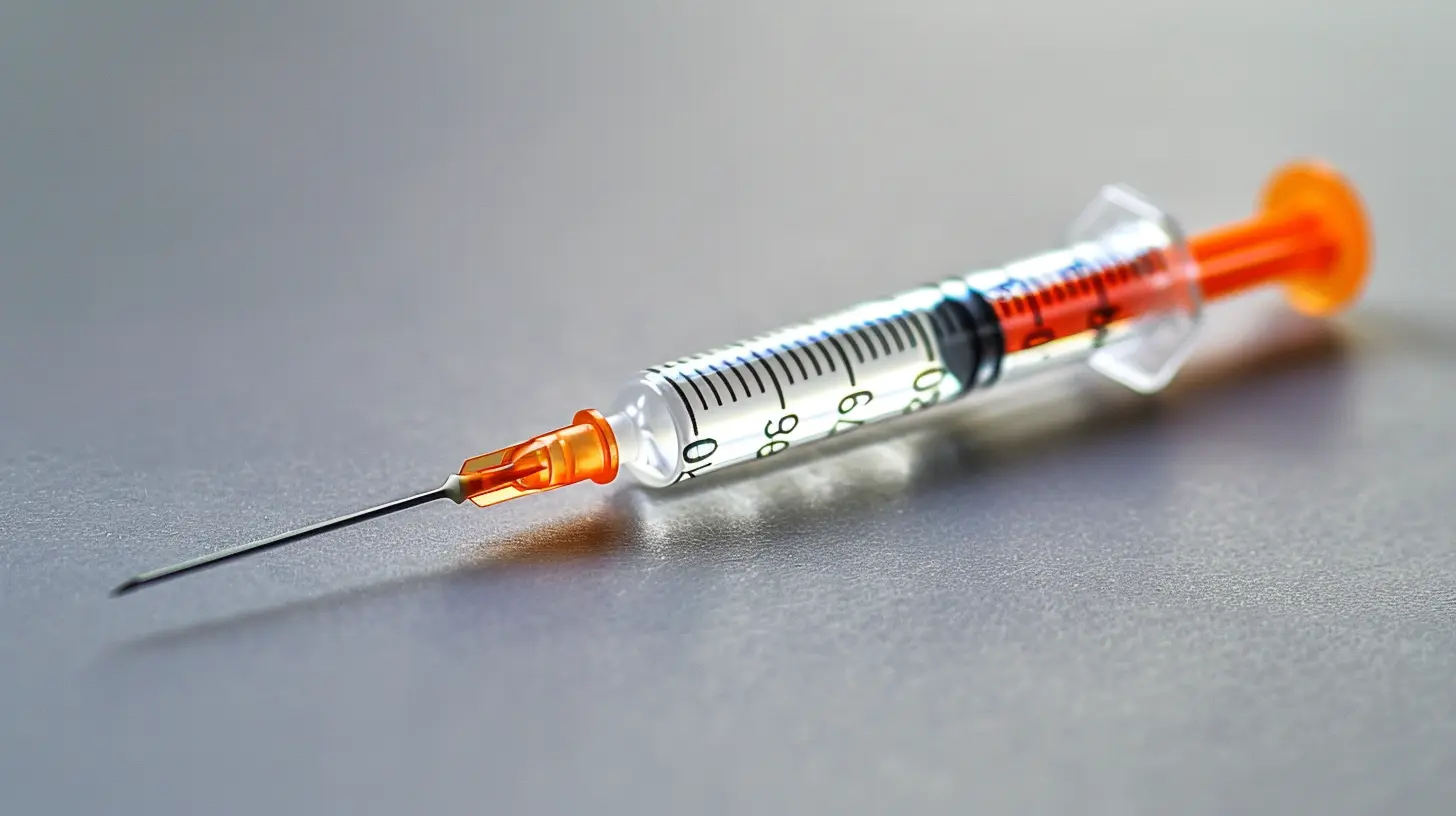19 February 2025
When it comes to parenting, a million questions seem to pop up at every turn, right? And somewhere near the top of that list is this big one: "What’s the deal with childhood vaccines?" It’s a topic that sparks everything from worry to confusion to downright debates at the park. But let me assure you, as overwhelming as it feels, you’re not alone in this journey of figuring it all out. So, grab a cup of coffee, settle in, and let’s break childhood vaccines down into plain, simple terms. No jargon, no judgment—just the facts and a sprinkle of reassurance.
Why Childhood Vaccines Matter
Would you rather spend your weekend nurturing your toddler's artistic streak or nursing them through a preventable illness? Exactly. Vaccines are like a seatbelt for your child’s immune system—offering protection by preparing their body to fight off harmful diseases. Think of it as giving their immune system a cheat sheet before the real test arrives.Diseases like measles, polio, and whooping cough might sound like historical footnotes, but believe it or not, they’re still lurking around. Without vaccines, those illnesses could make a nasty comeback. And let’s be real—no one wants to turn back the clock to a time when polio paralyzed kids or measles spread like wildfire at birthday parties.
How Vaccines Work (Without Getting Too Science-y)
Remember when you aced that pop quiz because your friend gave you a heads-up about what questions were coming? Vaccines do something similar for your child's immune system. When your kiddo gets vaccinated, they're introduced to a harmless version of a germ. It’s like giving their body a sneak preview of the villain, so their immune system can gear up, ready to fight if the real deal ever shows up.The immune system learns. It remembers. And that’s why vaccines help your child dodge some pretty serious illnesses in the first place. It’s a little like teaching them stranger danger but for germs—"Hey, if you see this bad guy, here’s how you fight back!"
The Vaccine Schedule: Why Timing Is Everything
Ever wonder why your pediatrician hands you that long, slightly intimidating vaccine schedule? It’s not just busywork. Vaccines are timed to protect your little one when they’re most vulnerable.Picture this: your baby is born with a pretty basic immune system—kind of like training wheels. The vaccine schedule helps "upgrade" their immune system at just the right moments. Some vaccines are given in a series (like those epic movie trilogies), boosting that protection over time. Skipping or delaying vaccines could leave gaps in their armor, and no parent wants that.
What About Combination Vaccines?
Ah, the dreaded thought of multiple shots at one visit. Don’t worry; it’s not as scary as it sounds. Combination vaccines (like the MMR for measles, mumps, and rubella) are like ordering a combo meal: one stop for more protection. Plus, fewer jabs mean fewer tears—for both you and your kiddo.
Are Vaccines Safe? Let’s Get Real About Concerns
This is the part where most parents hold their breath. Let me put your mind at ease: vaccines are some of the most carefully tested and monitored medical products in history. Seriously, they go through more red tape than a celebrity trying to dodge paparazzi.But let’s address the elephant in the room: side effects. Yes, vaccines can cause mild reactions, like a sore arm or a low fever. Think of it like a workout—your body’s just reacting to being “trained” to fight the bad guys. Severe side effects? Very, very rare. You’re more likely to get struck by lightning than experience one.
Still feeling unsure? That’s okay. Talk to your pediatrician, ask all the questions (no matter how "silly" they feel), and make the choice that’s best for your family.
Myths, Debunked: No, Vaccines Don’t Cause Autism
Let’s tackle this head-on because this myth just won’t quit. The idea that vaccines cause autism came from a study that’s been thoroughly debunked and retracted. Like, shredded. And dozens of major studies since then have shown zero connection. Zilch.To put it another way: blaming vaccines for autism is like blaming seatbelts for car accidents. Correlation doesn’t equal causation, and science has your back on this one.
What Happens If We Skip Vaccines?
This is where things get dicey. If vaccination rates drop, diseases that were once under control can make a comeback. It’s like allowing weeds to grow in a well-kept garden. One kid without vaccines might be fine, but when enough people skip them, you’ve got fertile ground for outbreaks.Skipping vaccines doesn’t just affect your child—it impacts the whole community. Parents of kids with weakened immune systems (like those undergoing cancer treatment) rely on the rest of us to keep germs at bay. It’s called herd immunity, and it’s a real-life example of teamwork making the dream work.
How to Prepare Your Child for Shots (And Yourself!)
Okay, let’s talk logistics. Nobody—kids or grown-ups—enjoys getting poked with needles, but there are ways to make it less stressful.1. Distraction is key: Pull out a favorite toy, sing a silly song, or let them watch a quick video on your phone.
2. Be honest: Don’t tell them it won’t hurt; instead, let them know it’ll sting for a second, but then it’s over.
3. Comfort them afterward: Snuggles, stickers, and maybe even a treat (like ice cream!) go a long way toward turning the day around.
For you? Take a deep breath. Watching your child get a shot can be harder on you than it is on them. Remind yourself that you’re doing this to protect them—and that makes you one awesome parent.
What’s Next? Staying on Top of Vaccine Appointments
The good news is you don’t need to tackle this alone. Pediatricians are pros at keeping track of your child’s vaccine schedule. If you’re the forgetful type (no judgment—I’ve lost track of school picture day for three years running), consider setting phone reminders or using a healthcare app.Oh, and don’t forget about flu shots! They’re an annual must-have to protect against the flu—a sneaky illness that’s especially hard on young kids. It’s like setting your clocks for daylight savings: annoying, but totally worth the effort.
Trusting the Process: A Word of Encouragement
Listen, parenting is no small task. From sleepless nights to deciding whether that rash needs a doctor’s visit, the choices can feel endless. But when it comes to vaccines, you’re giving your child a gift—the protection they need to grow up happy and healthy. And really, isn’t that what every parent wants?So, pat yourself on the back for even reading this far. It shows you care, and that’s half the battle. Remember, you’ve got this—or at least, you’re figuring it out one step at a time. And isn’t that what parenting is all about anyway?










Hattie McGeehan
Vaccines: the ultimate childhood insurance without the annoying paperwork! Just remember, a tiny pinch now means fewer trips to the doctor later. Totally worth it, right?
April 1, 2025 at 3:30 PM